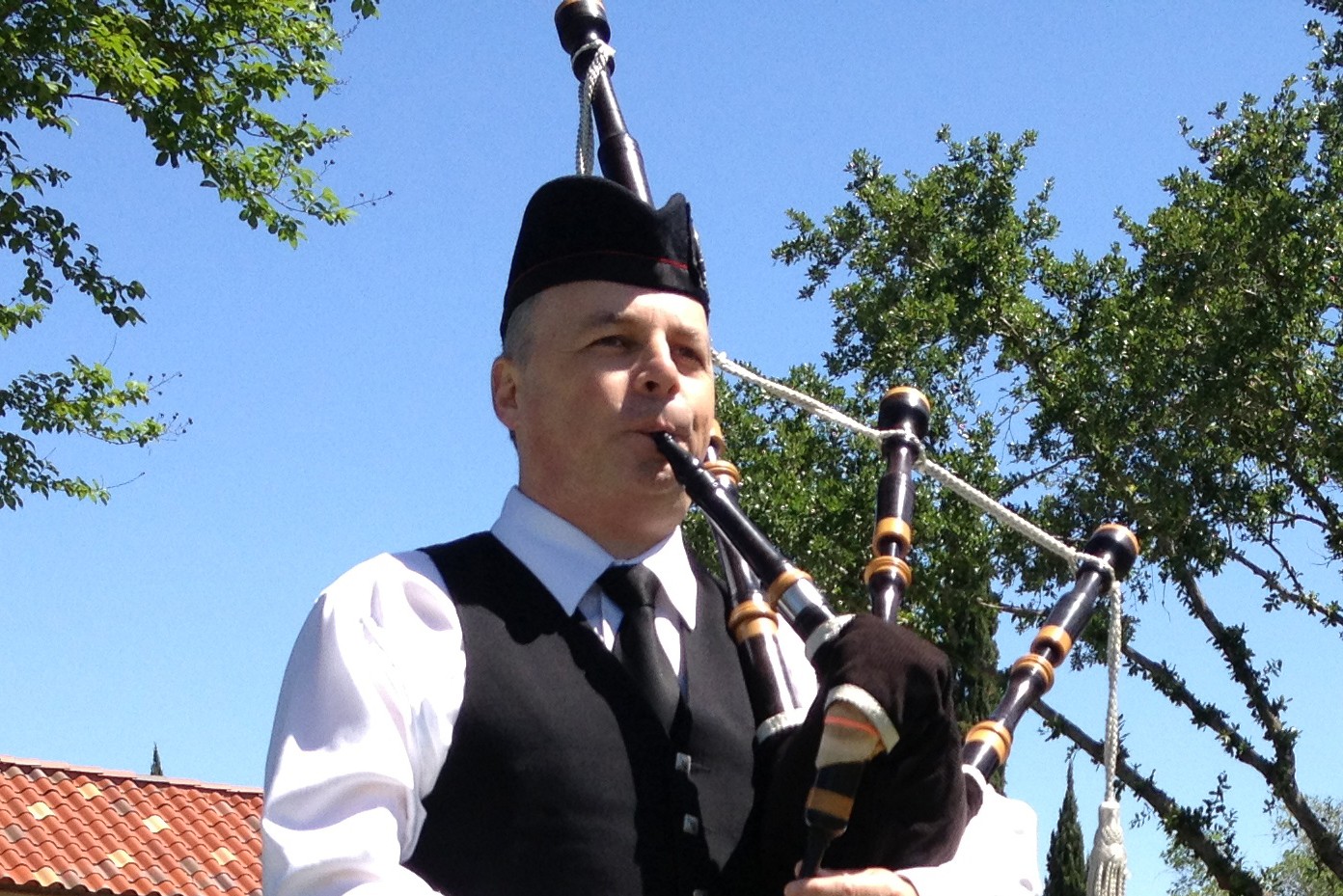Born in Edinburgh Scotland, Richard moved to Canada at the age of three and at ten began Lessons under his father, Pipe Major Eric Kean. Richard continued his Lessons with several prominent Canadian pipers including, Rene Cuson, Rob Rife, and Allan Walters. By his late teens, Richard began exploring the highland bagpipe outside of its traditional setting. Bands such as Na Caber Feidh (Who went on to become Rare Air), Borne and MacLeod, Robert Matheson’s first solo album, and the 78th Fraiser Highlanders all greatly influenced Richards interest in expanding the repertoire of the Highland Bagpipe
Together with Duane Colley and Bruce MacKay, two other native Albertans, Richard formed the group MacBOFA and began developing new styles and compositions for the Highland bagpipe. Richard later moved back to Edinburgh where he teamed up with Pipe Major Lindsay Davidson, B.Mus. edu. forming the pipe duet Teribus. Teribus traveled extensively throughout Europe and produced two albums featuring strong traditional bagpipe music and new compositions by Richard and Lindsay. Richard also participated in the formation of Stockbridge Pipe Band, Edinburgh and was pipe sergeant for three years until returning to Canada.
After a year in Winnipeg, Richard moved to Houston Texas and soon joined the Hamilton Pipe Band, a successful competition band based in Houston now renamed the St. Thomas Alumni Pipe band. In early 2000 Richard continued his interest in contemporary bagpiping and has performed with: Poor Man’s Fortune Austin, TX; Jiggernaut Ft. Worth, TX; Beyond the Pale Dallas, TX; Tartanic Houston, TX Wolgemut Germany; Teribus Sherman, TX; Needfire Dallas, TX; The Rogues Houston, TX; Brizeus Ashville, NC.
Richard continues to participate in the community and offers lessons and regularly performs at weddings and other ceremonial events. Oh, and if you ask nicely he might even make you a bagpipe
All of these endeavors share a common goal; to allow Richard to express his love of bagpipes and their music and to continue the development of bagpipes in new settings.
